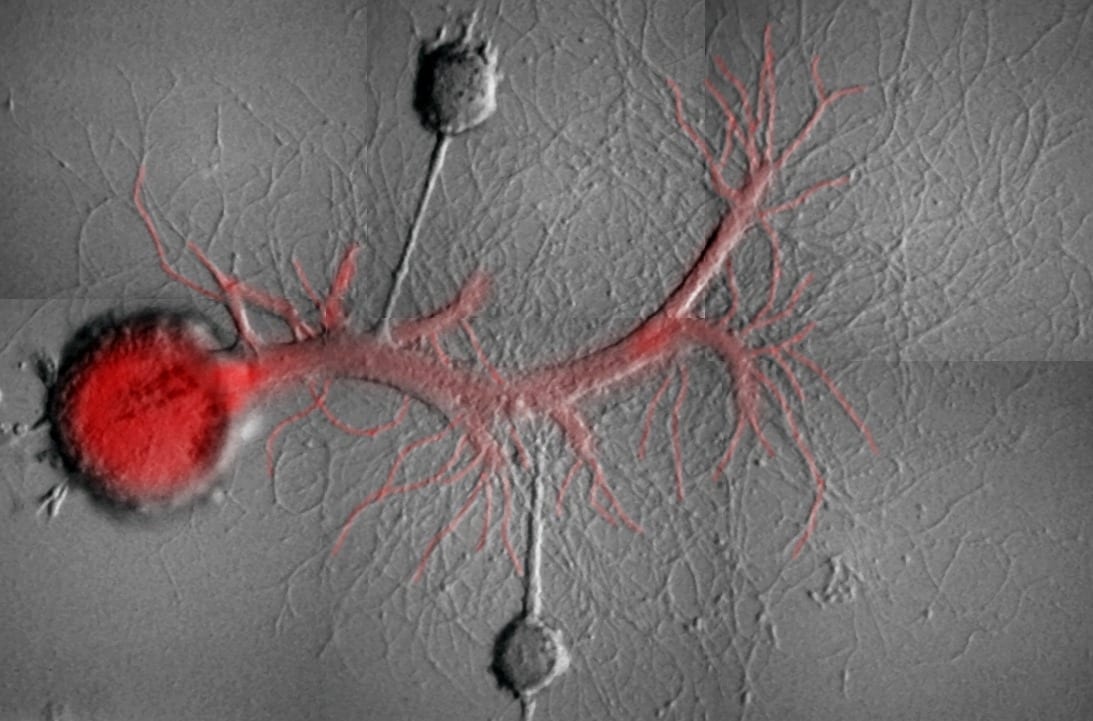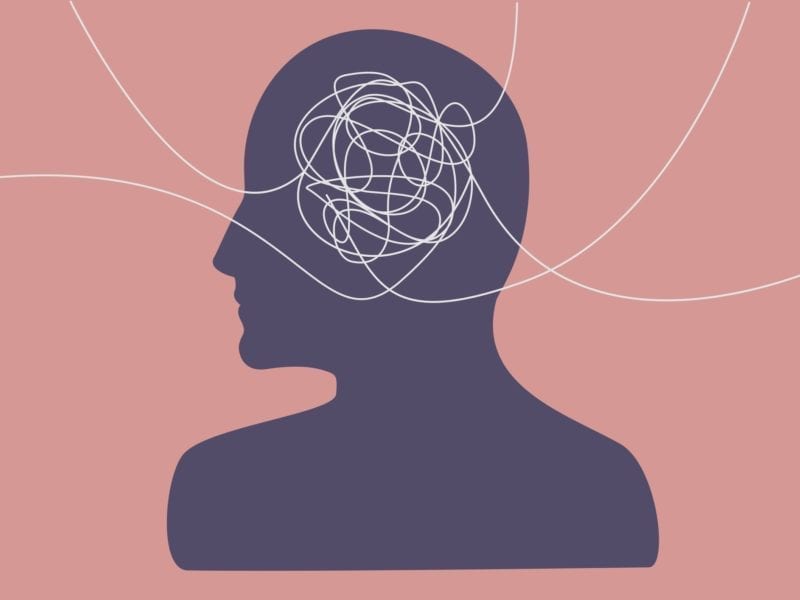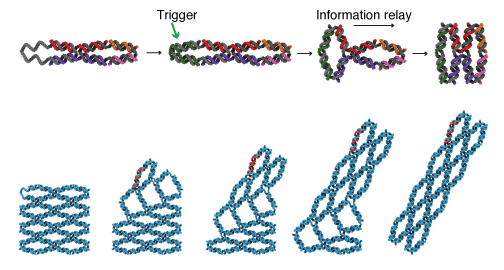
New study of snail neurons suggests memories that trigger anxiety, PTSD could be ‘erased’ without affecting normal memory of past events
Different types of memories stored in the same neuron of the marine snail Aplysia can be selectively erased, according to a new study by researchers at Columbia University Medical Center (CUMC) and McGill University and published today in Current Biology.
The findings suggest that it may be possible to develop drugs to delete memories that trigger anxiety and post-traumatic stress disorder (PTSD) without affecting other important memories of past events.
During emotional or traumatic events, multiple memories can become encoded, including memories of any incidental information that is present when the event occurs. In the case of a traumatic experience, the incidental, or neutral, information can trigger anxiety attacks long after the event has occurred, say the researchers.
“The example I like to give is, if you are walking in a high-crime area and you take a shortcut through a dark alley and get mugged, and then you happen to see a mailbox nearby, you might get really nervous when you want to mail something later on,” says Samuel Schacher, PhD, a professor of neuroscience in the Department of Psychiatry at CUMC and co-author of the paper. In the example, fear of dark alleys is an associative memory that provides important information—e.g., fear of dark alleys—based on a previous experience. Fear of mailboxes, however, is an incidental, non-associative memory that is not directly related to the traumatic event.
“One focus of our current research is to develop strategies to eliminate problematic non-associative memories that may become stamped on the brain during a traumatic experience without harming associative memories, which can help people make informed decisions in the future—like not taking shortcuts through dark alleys in high-crime areas,” Dr. Schacher adds.
Brains create long-term memories, in part, by increasing the strength of connections between neurons and maintaining those connections over time. Previous research suggested that increases in synaptic strength in creating associative and non-associative memories share common properties. This suggests that selectively eliminating non-associative synaptic memories would be impossible, because for any one neuron, a single mechanism would be responsible for maintaining all forms of synaptic memories.
The new study tested that hypothesis by stimulating two sensory neurons connected to a single motor neuron of the marine snail Aplysia; one sensory neuron was stimulated to induce an associative memory and the other to induce a non-associative memory.
By measuring the strength of each connection, the researchers found that the increase in the strength of each connection produced by the different stimuli was maintained by a different form of a Protein Kinase M (PKM) molecule (PKM Apl III for associative synaptic memory and PKM Apl I for non-associative). They found that each memory could be erased – without affecting the other — by blocking one of the PKM molecules.
In addition, they found that specific synaptic memories may also be erased by blocking the function of distinct variants of other molecules that either help produce PKMs or protect them from breaking down.
The researchers say that their results could be useful in understanding human memory because vertebrates have similar versions of the Aplysia PKM proteins that participate in the formation of long-term memories. In addition, the PKM-protecting protein KIBRA is expressed in humans, and mutations of this gene produce intellectual disability.
“Memory erasure has the potential to alleviate PTSD and anxiety disorders by removing the non-associative memory that causes the maladaptive physiological response,” says Jiangyuan Hu, PhD, an associate research scientist in the Department of Psychiatry at CUMC and co-author of the paper. “By isolating the exact molecules that maintain non-associative memory, we may be able to develop drugs that can treat anxiety without affecting the patient’s normal memory of past events.”
“Our study is a ‘proof of principle’ that presents an opportunity for developing strategies and perhaps therapies to address anxiety,” said Dr. Schacher. “For example, because memories are still likely to change immediately after recollection, a therapist may help to ‘rewrite’ a non-associative memory by administering a drug that inhibits the maintenance of non-associative memory.”
Future studies in preclinical models are needed to better understand how PKMs are produced and localized at the synapse before researchers can determine which drugs may weaken non-associative memories.
Learn more: Select Memories Can Be Erased, Leaving Others Intact
The Latest on: Erasing memories
[google_news title=”” keyword=”erasing memories” num_posts=”10″ blurb_length=”0″ show_thumb=”left”]- Chanel Beads Waft Through a Collage of Memory and Sound on Your Day Will Comeon April 21, 2024 at 8:51 pm
Shane Lavers’ debut album for his beloved experimental project is the product of years spent workshopping an avant-garde sound across NYC’s DIY scene.
- Cheslie Kryst’s Mom Opens Up About the Former Miss USA’s 2022 Suicide: 'I Can't Let Guilt Erase What We Had' (Exclusive)on April 21, 2024 at 4:00 pm
Cheslie Kryst’s mom April Simpkins speaks to PEOPLE in an exclusive about healing after the loss of her daughter, who died by suicide at the age of 30 in 2022.
- Will Smith erases memories at Coachella in first post-slap concerton April 15, 2024 at 5:28 am
Dancers swarmed the stage from behind, plying the same moves as the original music video for the song "Men in Black," which Smith wrote specifically as a tie-in to the film. Smith rapped along as ...
- If you could, would you erase memories of your ex?on April 9, 2024 at 12:02 am
As Eternal Sunshine of the Spotless Mind turns 20, we reflect on whether the sci-fi tech at the heart of the film could actually be the best post-breakup medicine ...
- If you could, would you erase all memories of your ex?on April 8, 2024 at 8:00 pm
All these years later, then, the debate at the film’s heart rages on: If you could, would you erase all memories of your ex? The allure of such a possibility was all too real for me at the time. Like ...
- If you could, would you erase all memories of your ex?on April 8, 2024 at 5:00 pm
All these years later, then, the debate at the film’s heart rages on: If you could, would you erase all memories of your ex? The allure of such a possibility was all too real for me at the time.
- Erasing Memories, Concealing Evidence: China’s Efforts to Obscure the Uyghur Genocideon April 2, 2024 at 4:59 pm
Accordingly, the memories of the Uyghur genocide fade into ... alteration marks the culmination of the Uyghur genocide, erasing any trace of the Uyghur population’s existence, culture, and ...
via Google News and Bing News










